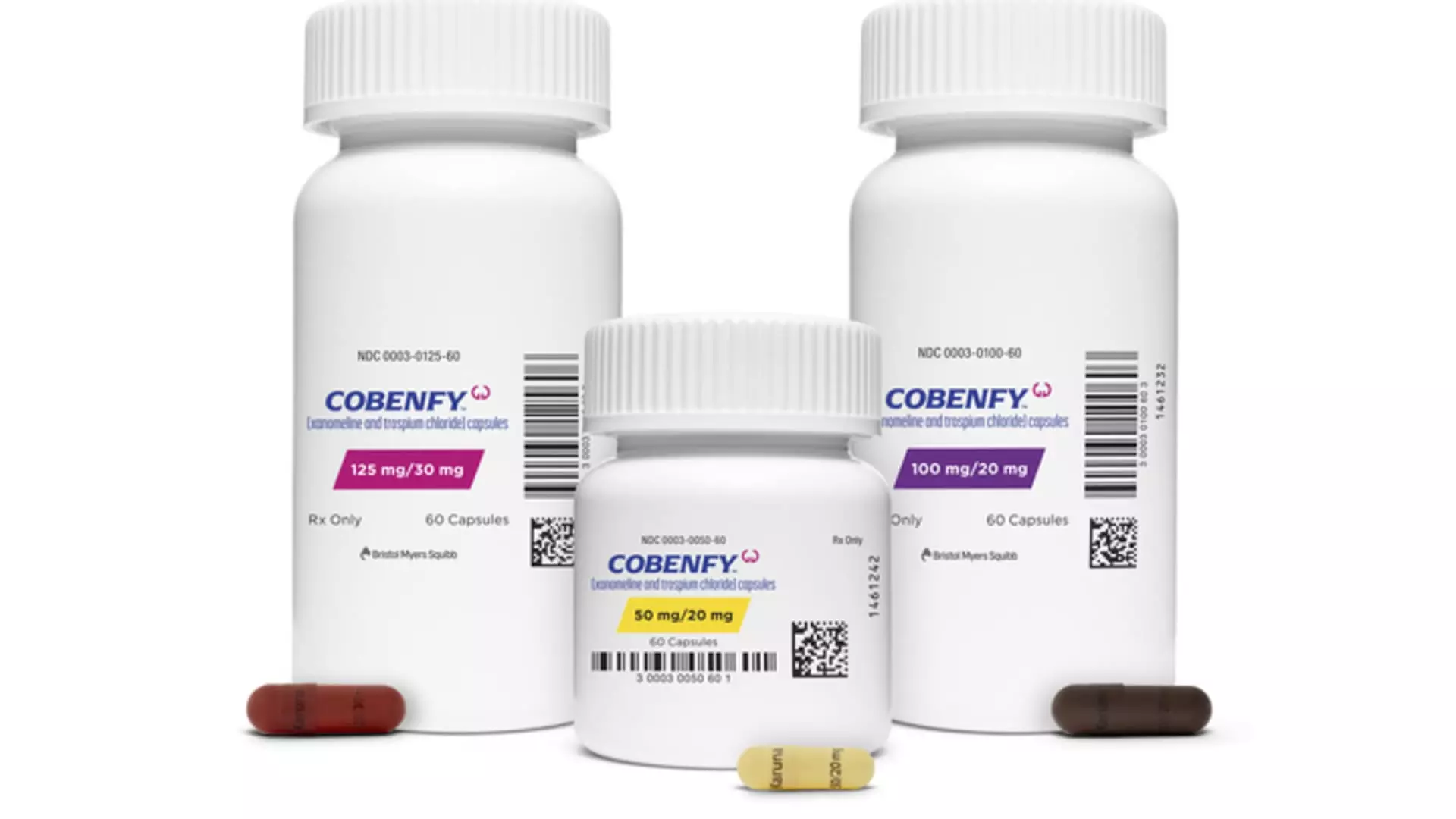In a groundbreaking move within the medical field, the Food and Drug Administration (FDA) recently granted approval for Cobenfy, a revolutionary treatment for schizophrenia developed by Bristol Myers Squibb. This marks a significant milestone, as it is the first innovative drug targeting this chronic mental health condition in over 70 years. Schizophrenia presents a unique set of challenges for its approximately 3 million adult sufferers in the United States, often manifesting in severe symptoms like paranoia, hallucinations, and emotional volatility. These symptoms can severely impair an individual’s capacity to engage in everyday activities, including work, socialization, and education.
The urgency for new treatment options is underscored by the statistics: of the 3 million diagnosed, only 1.6 million are currently receiving treatment. Alarmingly, about 75% of those undergoing traditional medication regimens discontinue their use within the first 18 months, frequently due to difficulties in tolerating existing medications that either lack efficacy or come with a challenging side effect profile. Cobenfy aims to fill this critical void by catering to a patient population that has long experienced a lack of suitable therapeutic options.
Impact on the Market and Patient Care
Projected to hit the market in late October, Cobenfy is more than just another pharmaceutical breakthrough for mental health; it represents a substantial business opportunity for Bristol Myers Squibb. Following its $14 billion acquisition of Karuna Therapeutics, the pharmaceutical giant is looking towards Cobenfy as a pivotal revenue source, particularly as patents on some of its best-selling medications loom nearing expiration. Analysts, such as those from Guggenheim, see potential in Cobenfy as a “multi-billion dollar opportunity,” although they caution that the drug may experience a gradual uptake amongst healthcare providers.
Andrew Miller, a key figure in the development of Cobenfy and an advisor to Bristol Myers Squibb, expressed hope that this breakthrough could transform treatment paradigms and enhance the quality of care available for individuals suffering from schizophrenia. Miller posits that the true impact of Cobenfy will be measurable in the years to come, possibly altering how schizophrenia is perceived in medical research and communication.
Despite its innovative potential, Cobenfy comes with a hefty price tag of $1,850 for a monthly supply, amounting to an annual cost of $22,500. While Bristol Myers Squibb asserts that this pricing aligns with other branded schizophrenia treatments and anticipates that most patients will encounter minimal out-of-pocket expenses due to government insurance coverage (about 80% of which is provided through Medicare and Medicaid), concerns regarding affordability remain. Patients lacking insurance might find it difficult to access Cobenfy, particularly when juxtaposed with significantly lower-priced alternatives like generic Abilify, which costs as little as $16 for a month’s supply.
Bristol Myers Squibb plans to implement a program aimed at helping alleviate the financial burden on patients, but the extent to which this will enhance access remains to be seen. Experts caution that pricing may dictate the drug’s use, as many patients are likely to be required to “fail” existing treatments before being approved for Cobenfy, a sentiment echoed by clinical professionals.
Mechanism of Action: A Novel Approach
Cobenfy distinguishes itself pharmacologically by being the first treatment in a new class of schizophrenia medications that do not directly block dopamine pathways, a common target in other antipsychotic medications. Instead, its formulation combines xanomeline, which activates muscarinic receptors in the brain but lessens dopamine activity, along with trospium, which mitigates gastrointestinal side effects commonly seen with xanomeline.
This innovative mechanism holds promise, especially for patients who have previously encountered issues with traditional antipsychotic treatments, which often lead to undesirable side effects like weight gain and involuntary movements. Bristol Myers Squibb is optimistic that Cobenfy could shift the treatment landscape for schizophrenia, moving towards a regimen that emphasizes both efficacy and tolerability.
As Bristol Myers Squibb prepares for the launch of Cobenfy, the anticipation surrounding its potential impact on patient outcomes and clinical practices remains palpable. Whether Cobenfy can effectively alter the narrative around schizophrenia treatment will largely depend on its acceptance in the medical community and by patients over time. The ongoing exploration—such as late-stage trials evaluating its efficacy for treating psychotic symptoms in Alzheimer’s disease—further illuminates the drug’s broader implications.
Ultimately, Cobenfy stands at the intersection of innovation and necessity, beckoning a hopeful new era for individuals struggling with schizophrenia. As narratives shift and clinical practices evolve, this drug embodies a promise for better management of a complex and often stigmatised condition.


Leave a Reply